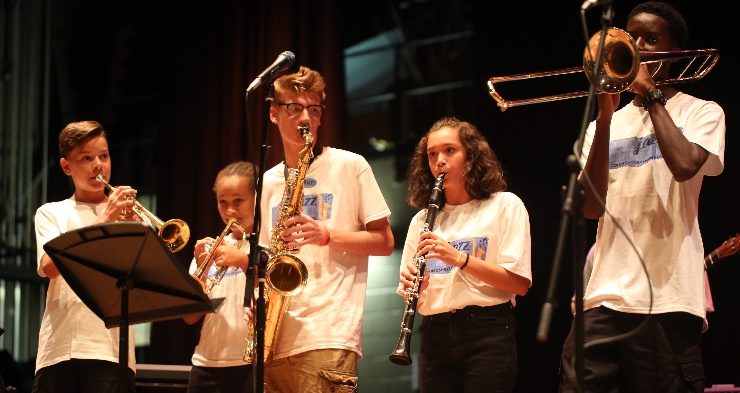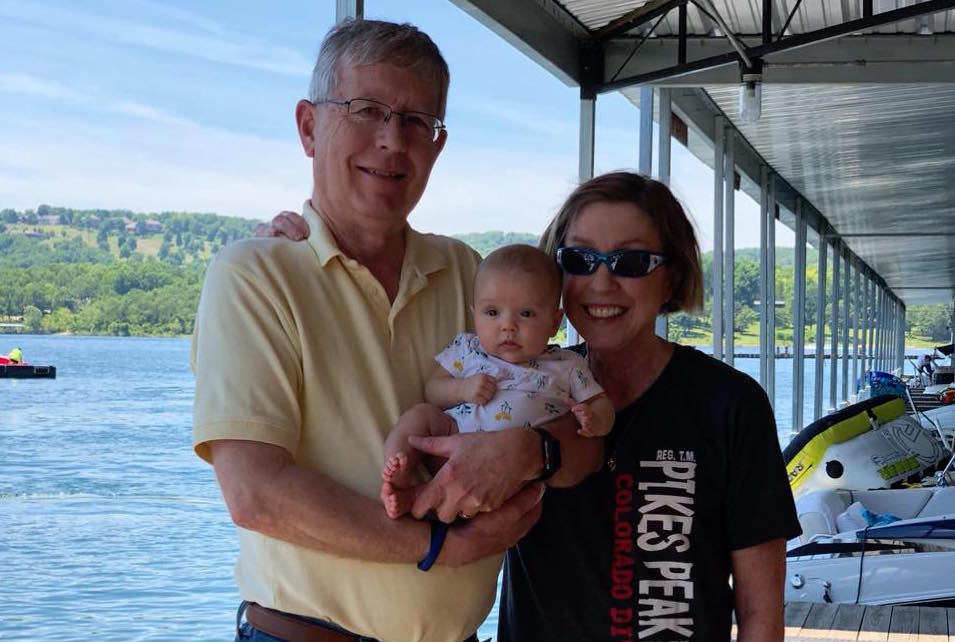
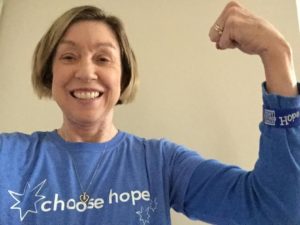 In May 2015, my daughter suggested I go see a dermatologist about a spot on my forehead. It was diagnosed as pleomorphic t-cell lymphoma. He sent me to a lymphoma oncologist at The University of Kansas Cancer Center because this was a rare cancer. I completed 15 rounds of radiation, and the lymphoma oncologist ordered at CT scan. Before I was even two blocks away from that appointment, he called my cell phone saying I had a tumor in my colon. He asked when I had my last colonoscopy. I’m a “rule follower,” so I had mine done at age 50 with an “all clear.” Dr. Yacoub told me I’d have my next colonoscopy before I turned 60.
In May 2015, my daughter suggested I go see a dermatologist about a spot on my forehead. It was diagnosed as pleomorphic t-cell lymphoma. He sent me to a lymphoma oncologist at The University of Kansas Cancer Center because this was a rare cancer. I completed 15 rounds of radiation, and the lymphoma oncologist ordered at CT scan. Before I was even two blocks away from that appointment, he called my cell phone saying I had a tumor in my colon. He asked when I had my last colonoscopy. I’m a “rule follower,” so I had mine done at age 50 with an “all clear.” Dr. Yacoub told me I’d have my next colonoscopy before I turned 60.
I then started seeing a gastroenterology oncologist, Dr. Al-Rajabi, at KU Cancer Center. He sent me to a GI oncology surgeon, Dr. Al-Kasspooles. Dr. Al-Kasspooles removed a little over a foot of my colon and 39 lymph nodes. My colon had two tumors. The largest was golf ball sized. Twenty of 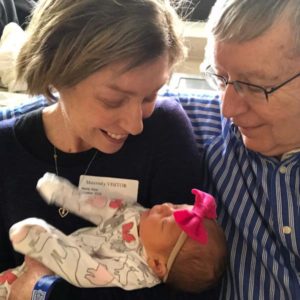 my lymph nodes were cancerous. I did six months of chemotherapy, but wasn’t able to do all 12 due to low blood counts and extreme difficulty with Oxaliplatin. CT scans were every three months, and a spot in my lung, that had been 4 mm, grew to 1 cm 10 months after I had completed chemo.
my lymph nodes were cancerous. I did six months of chemotherapy, but wasn’t able to do all 12 due to low blood counts and extreme difficulty with Oxaliplatin. CT scans were every three months, and a spot in my lung, that had been 4 mm, grew to 1 cm 10 months after I had completed chemo.
I went to a cardiovascular surgeon who specializes in cancer. He removed the top lobe of my left lung and some lymph nodes. The pathology report found the spot to be colon cancer, and my lymph nodes were clear. I had the choice of doing chemo or not, and I chose to go with chemo, another six months. This time I didn’t do Oxaliplatin because my medical team feared it would kill me. My response to that was, “That kind of defeats the purpose of chemo.” I have to have a sense of humor with my team.
On May 7, 2017, I had completed all 12 rounds of chemo, so I have had 20 rounds total of chemo when combining them all. I have had CTs every four months and have been NED since June 2018. My next CT will be in February 2019. If it is clear, I will “graduate” (my wording for it) to CTs every six months. My team will continue to keep an 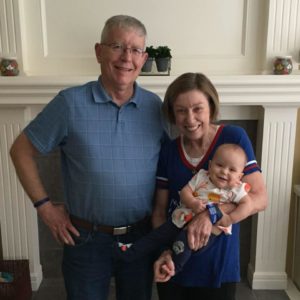 eye on me, and I will let them know if there are symptoms that need to be checked.
eye on me, and I will let them know if there are symptoms that need to be checked.
Now I am a Colon Cancer Ambassador for Colon Cancer Alliance. I am extremely grateful for that spot in May 2015, which probably saved my life! Prayers, support, encouragement, and research have helped me with this challenge. I always end my Facebook posts/updates with “Faith, Family, Friends, and Incredible Medical Team!”
For me, “Get Your Rear in Gear” means to stay vigilant with my health care. In this 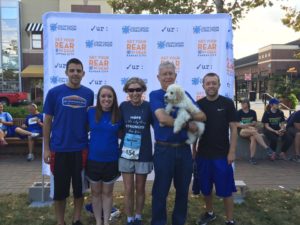 case, it means if there are symptoms that are questionable, I need to contact my medical oncology team immediately. It also means get colonoscopies as often as the medical team says it is necessary. I am now at every three years, but it will be sooner if needed.
case, it means if there are symptoms that are questionable, I need to contact my medical oncology team immediately. It also means get colonoscopies as often as the medical team says it is necessary. I am now at every three years, but it will be sooner if needed.

